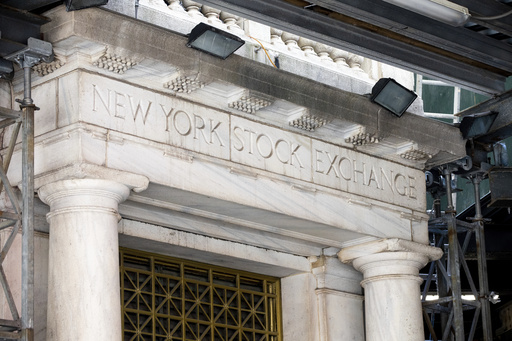BANGKOK (AP) — Shares advanced in Europe on Friday after a day of mixed and sparse trading in Asia, where many markets were closed for public holidays.
Oil prices edged higher and U.S. futures advanced.
Crude oil prices are hovering near their highest levels this year, adding to the inflationary pressures that are a factor behind the Federal Reserve’s intention to keep interest rates high. The likelihood of a U.S. federal government shutdown is also clouding the outlook for the U.S. economy.
Germany’s DAX rose 0.8% to 15,438.45 and the CAC 40 in Paris also added 0.8% to 7,176.34. London’s FTSE 100 was up 0.7% at 7,655.90.
The futures for the S&P 500 and the Dow Jones Industrial Average were both less than 0.5% higher. On Thursday, Wall Street’s benchmarks ticked higher, trimming its sharp loss for September. The S&P 500 rose 0.6% and the Dow gained 0.3%. The Nasdaq composite climbed 0.8%.
In Asian trading Friday, Tokyo’s Nikkei 225 index lost 0.1% to 31,857.62. Australia’s S&P/ASX 200 added 0.3% to 7,048.60. India’s Sensex gained 0.9%, while in Bangkok the SET declined 0.1%.
Markets were closed in Hong Kong, Shanghai, Taiwan and Seoul.
China Evergrande, the world’s most heavily indebted real estate developer, said in a notice to the Hong Kong Stock Exchange that its shares would remain suspended until further notice after they plunged nearly 20% on Wednesday and were suspended from trading as of Thursday.
Evergrande is at the center of a property market crisis that is dragging on China’s economic growth.
U.S. stocks are on track for their worst month of the year as Wall Street grapples with a new normal where interest rates may stay high for a while. The Federal Reserve has pulled its main interest rate to the highest level since 2001 in hopes of extinguishing high inflation, and it indicated last week it may cut rates by less next year than earlier expected.
It’s a sharp departure from recent years, when investors counted on the Fed to cut rates quickly and sharply whenever things looked dicey. Lower rates can goose financial markets, while high rates slow the economy by design and hurt prices for stocks and other investments.
U.S. economic data has been mixed. Fewer workers applied for unemployment benefits last week than economists expected. That signals the job market is solid, which helps prevent recession but may also keep prices higher due to upward pressure on wages.
Another report Thursday said the U.S. economy grew at a 2.1% annual rate during the summer, following some revisions to earlier estimates. That was below economists’ expectations, but economic growth looks like it’s remained solid through the third quarter at least. The question is how the trend goes in the final three months of the year.
Altogether, the reports didn’t give anything to change investors’ minds about the Fed staying tough on interest rates, something that Wall Street calls a “hawkish” stance on policy.
Early Friday, U.S. benchmark crude gained 23 cents to $91.94 per barrel. It declined nearly $2 on Thursday.
Brent crude oil, the international standard, climbed 7 cents to $93.17 per barrel.
In currency dealings, the dollar fell to 148.92 Japanese yen from 149.31 yen late Thursday. The euro climbed to $1.0608 from $1.0568.
Source: post





